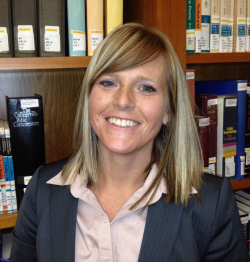Keeping it Real: Emotional Display Behaviour

I didn’t plan to bring it up. In fact, I had made a conscious decision to not talk about it. But, in the middle of class, I said something. I had to. I still wonder if I made the right decision.
August 27 was the first day of my Theology of Church and Ministry class. I was prepared with a list of learning objectives I wanted to accomplish: introductions to the class and to each other; review of the course outline; overview of the scope of the course; discussion of students’ initial understandings of “church” and “ministry.”
It was my first day back in the classroom since August 9, when the unarmed 18 year-old, Michael Brown was shot and killed by police officer Darren Wilson. I had been following the news reports of the ensuing riots in Ferguson, Missouri and the militarized police response. I also read and “shared” the teaching resources on Twitter with the hashtag #FergusonSyllabus
I was haunted by my feelings of sadness. I couldn’t stop identifying with Michael Brown’s mother. I am not a person of color. I am not a mother. Yet, I was sad for everyone in our racialized society, especially her. I still am.
I reflected seriously on my decision to not bring up Ferguson. I remembered one emotionally charged classroom experience in particular. It was in March 2003, when the US declared war in Iraq. I was a graduate student in a “Marriage and Family” class. That March, my teacher came to class, but had obviously been crying. It was clear she was distraught. She began the class with a prayer for peace, and mentioned the death count of war fatalities. I was moved deeply. After class, though, I learned that many of my peers were not. Some wondered why we talked about the war in a marriage and family class. One student said something I still remember after ten years: “If she is that upset about the situation, she shouldn’t bring it up in class.”
I decided that, like my former teacher, my emotional vulnerability might lose some students. My emotions might cloud my ability to facilitate a reasoned discussion about Ferguson and racism. It was the first night of class. I didn’t know some of them yet, and they didn’t know me.
Something happened, though, in the middle of class which I did not anticipate (as often does when we are teaching!). A student brought up race. He discussed a parish setting he had recently encountered in which the majority of parishioners were white; they reacted negatively when a new Korean American priest came to the parish and a number of Korean Americans followed him there. The student wondered why the reaction was negative.
I decided then and there to talk about Ferguson. I spoke from the heart, sharing my own feelings that “racism is an original evil in our society,” and that “whenever white privilege is challenged there is backlash”. I had goose bumps on my arms the whole time, and felt like I was on the verge of tears.
My students may have been surprised. The system tells them not to expect a discussion on race, especially in a classroom in which the teacher and all but one of the students is white. The system tells them that race doesn’t matter in a class that explores “church” and “ministry”.
From what I could tell, the students mostly nodded their heads in solemn agreement with my remarks. No one challenged me, nor did anyone add to the discussion. Did my own emotional display present an obstacle to further discussion? I don’t know. In hindsight, I would have solicited informal student feedback at the end of that class.
When I discuss race in the classroom, I am prepared for emotional fallout -- both from students of color and white students of privilege. A mentor once told me to not use others’ pain as a heuristic tool in discussion of race. This August I learned I need to consider my own pain.
In a previous blog entry, Dr. Nyasha Junior asked, “Did YOU discuss Ferguson on your first day of class? Why or why not?” (See blog entry below dated 9/2/2014) I did, even though I didn’t plan on it. It was because, in the moment, I felt it was necessary to keep it real.
I now ask: When talking about Ferguson or racism in general, how do YOU as a teacher, manage your own emotional fallout? Can our own fallout be pedagogically effective display behaviour?
About Ella Johnson
Ella Johnson is an Assistant Professor of Systematic Theology at St Ambrose University. Ella lives in Davenport, IA, with her husband Gerry and their daughter Isa, who loves to laugh and keep them very active! Ella enjoys gardening, tending to her growing collection of houseplants, being silly with her daughter and nephews, and eating the delicious food her husband cooks. She teaches systematic theology to undergraduates and also graduate students, who are preparing for permanent diaconate ordination or lay ecclesial ministry. Ella's research focuses on recovering the theological insights of medieval women mystics. She has recently published a book, This is My Body: Eucharistic Theology and Anthropology in the Writings of Gertrude the Great of Helfta (Cisterican Publications, 2020). She also is constantly thinking about how to employ new teaching tactics and engage anti-racism and social justice concerns in the classroom and on campus.
